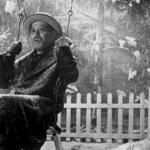Review of Butch Cassidy and the Sundance Kid, Directed by George Roy Hill
Butch Cassidy and the Sundance Kid (1969) is a movie I love to hate and hate to admit that I actually love. It is a movie about two outlaws who rob and kill their way through the Wild West and South America before meeting their ultimate end. Before they do, they become such endearing, hilarious, likeable crooks that you find yourself rooting for them. They are the archetypal anti-heroes, protagonists who embody vices rather than virtues, and this movie is a perfect example of how great movies with no respect for right and wrong ruin culture.
The movie is hilarious. This is one of the most consistently deadpan, straight-faced funny movies ever made. To describe the humor or quote lines would just ruin it. At one point they enter a bank in Bolivia to rob it. One tries to explain in broken Spanish that they’re robbing the bank. No one understands him, so they have to give up and leave. Robert Redford and Paul Newman essentially perfect the art of comedic timing, bromantic rapport, and witty banter. Trust me, this is a funny movie.
Consider it for its historical value. This was a hugely influential film in the evolution of movies away from traditional, classic films in which good guys win and bad guys get their comeuppance, towards movies that are morally ambiguous, subversive, and don’t always reward the good guys with a clean resolution. Movies like The Usual Suspects (1995), No Country For Old Men (2007), or The Silence of the Lambs (1992)—movies with villains so cool we want them to win—could never have been made if Butch and Sundance hadn’t come first. Think of the difference between the classics of the ‘40s and the classics of the ‘70s. Butch and Sundance were the bridge.

The movie could never have been made under the old Hays Code, the movie industry’s standards of self-censorship that predated the MPAA rating system. The Code enjoined, as its first general principle, that “the sympathy of the audience should never be thrown to the side of crime, wrongdoing, evil or sin.” That’s exactly what Butch and Sundance do. The movie came out the year after the Code was finally, formally abandoned.
Such a film would have been dismissed as immoral trash by polite society, except that it is so obviously good. It won four Oscars, including for its screenplay and cinematography, and was nominated for a clutch of others, including Best Picture and Best Director. It still stands as #73 on AFI’s list of the greatest films of all time (one of the few comedies on the list) and 150th on IMDB’s.
Sometimes movies are so entertaining, so professionally made, so artistically crafted, that we hardly notice when our morals are being subverted and mocked. Or if we notice, we give them the benefit of the doubt—because can anything so well made be that dangerous? We’re adults, after all. We can handle a little spiritual challenge.
Or can we? Was the Hays Code wrong to proscribe movies like this? Or are we wrong for welcoming an unchecked avalanche of morally offensive art into our society? The demise of the Hays Code gave us the hyper-violent, pornografied culture we have today—but it also created the world in which Francis Ford Coppola and Martin Scorsese could work. The Hays Code kept things clean, but it also kept them bland and monotonous. Is the world a better place because we have the freedom to watch The Godfather (1972) and Raging Bull (1980)? Movies like Butch Cassidy are the ultimate conundrum for Schaeffer’s Ghost. Poorly-made movies are easy to criticize and dismiss, whether they embody good values or bad. Well-made movies with good messages are easy to laud. What to do about the well-made movies with bad messages?
The default evangelical position these days, I think, is to praise these movies for their artistry while condemning their message and leave the choice about whether or not to see them up to the individual’s conscience. That position has much to recommend it. With that as the standard, I suspect most Christians would be perfectly comfortable watching Butch Cassidy. It’s a pretty clean film in conventional terms; it’d probably be rated PG-13, or even PG, if made today. There’s no hard cursing, the gunfights are not gory, and there is a single scene of mild sensuality. It’s funny, entertaining, has an intelligent, witty script, and is superbly well acted.
But if that’s our standard, there will be little that distinguishes Christians’ media choices from non-Christians’. Just like our unbelieving neighbors, we’ll spend the time and money to see the stuff the critics say is good, and we’ll avoid the trash—but we’ll have effectively outsourced our aesthetic judgments to the world. Shouldn’t we be distinct? Even if a movie, like Butch Cassidy, doesn’t tempt us to lust or brutalize our conscience or even lead us into false teaching, maybe the act of seeing it is a small symbolic act of giving in to the world’s standards, while the act of not viewing it is a symbol of the opposite.
The Bible calls us to sacrifice, after all. It is hardly a sacrifice not to watch some piece of drivel that hardly tempts you in the first place, but that’s not the case with Butch Cassidy. Perhaps for some it could be a small act of sacrifice, a small act of faithful presence in this world to choose not to see one of the greatest movies ever made because of its open celebration of immorality. It’s not a sacrifice I made, obviously; but when my kids are old enough to be interested in classics, I will at least invite them to consider their viewing choices in this light.












